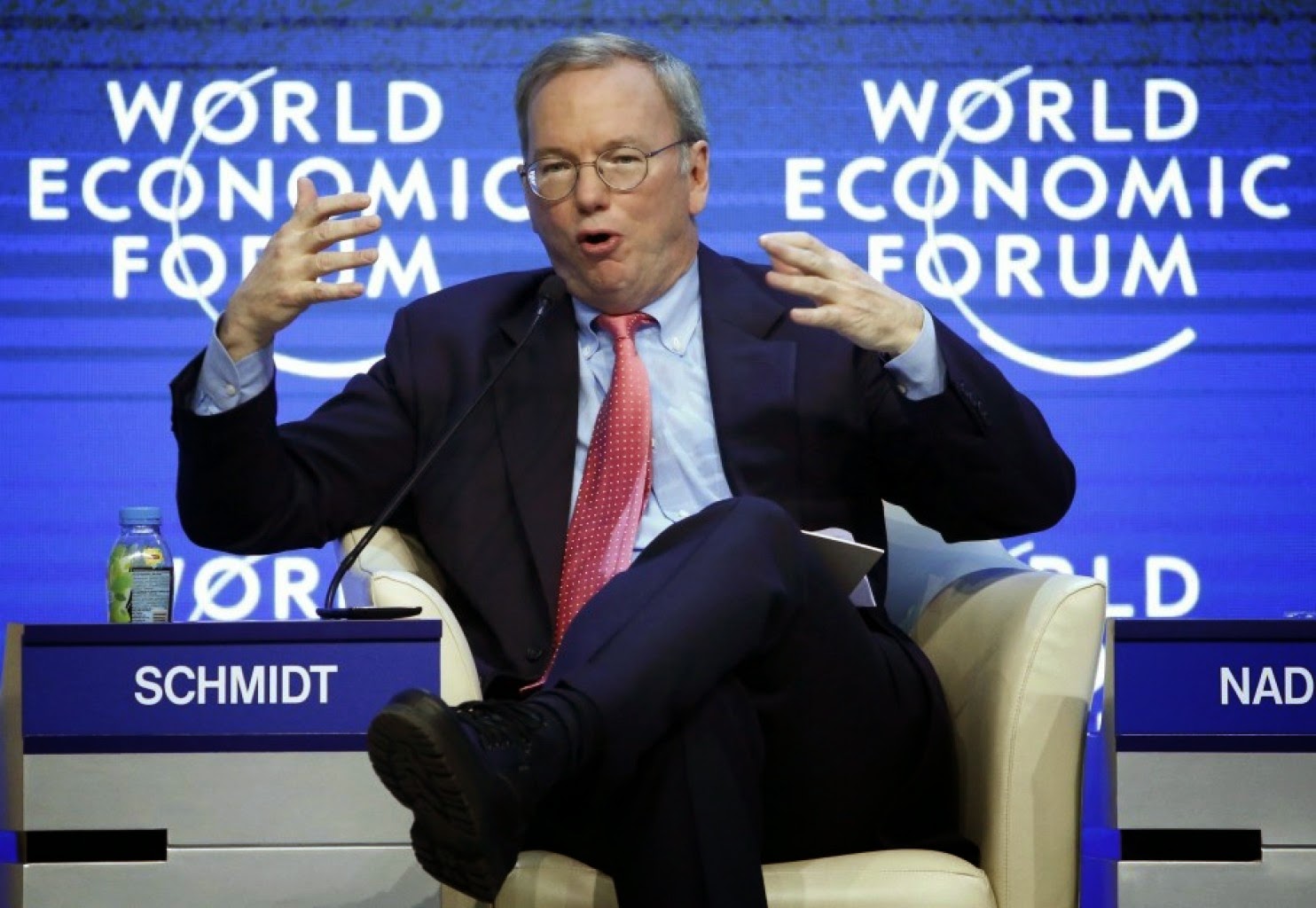 There are plenty of dying markets: DVD rentals, newspaper publishing,
appliance repair. And, according to Google's Eric Schmidt, the
Internet.
There are plenty of dying markets: DVD rentals, newspaper publishing,
appliance repair. And, according to Google's Eric Schmidt, the
Internet.During an appearance at the World Economic Forum in Davos, Switzerland, the Google executive chairman argued that, one day, "the Internet will disappear."
But before you envision a connectivity-free future, Schmidt's comments suggest that the Google exec envisions a future where the Internet as we know it will evolve into a system that's just there and always on.
"There will be so many IP addresses … so many devices, sensors, things that you are wearing, things that you are interacting with that you won't even sense it," he said, as published by The Hollywood Reporter. "It will be part of your presence all the time.
"Imagine you walk into a room, and the room is dynamic. And with your permission and all of that, you are interacting with the things going on in the room," he continued. "A highly personalized, highly interactive and very, very interesting world emerges."
On mobile, Schmidt is less certain. "All bets are off … as to what the smartphone app infrastructure is going to look like," he said. "I view that as a completely open market at this point."
The panel, which included Schmidt, Microsoft CEO Satya Nadella, and Vodafone chief Vittorio Colao, was led by Sheryl Sandberg, chief operating officer of Facebook, who extolled the importance of an expanding global Web presence.
With 5 billion people around the world still without Internet access, "the only way this changes is if it gets cheaper," Sandberg said, as reported by The New York Times.
Facebook and Google are both taking steps to bring more people online: The social network continues to broaden its Internet.org service, while Google's Project Loon is moving into new locations.
A separate WEF technology panel, meanwhile, saw Yahoo CEO Marissa Mayer and Salesforce.com head Marc Benioff discussing the need to regulate privacy standards on the Internet.
"Only through radical transparency will we get radical new levels of trust, which is where we need to get to," Benioff said.
Mayer took a slightly less drastic approach, telling the audience that "You need to have transparency but you also need to afford the individual choice and control."
Source by Pcmag.com










0 comments:
Post a Comment